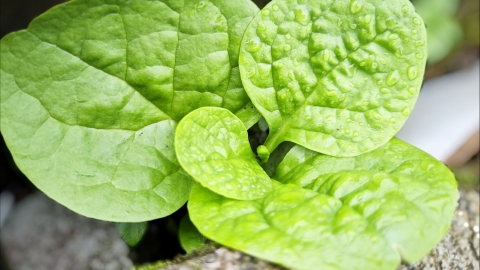Can I eat Malabar spinach if I have nephritis?
Whether patients with nephritis can consume Malabar spinach (Basella alba) depends on the specific condition of their illness. If the patient's condition is stable, moderate consumption is usually acceptable. However, if the patient is experiencing an acute flare-up, it is not recommended. Detailed analysis is as follows:

If the patient is in the stable phase of nephritis, with no significant abnormalities in kidney function and without complications such as hyperkalemia or oxalate metabolism disorders, Malabar spinach can be consumed in moderation. Malabar spinach is rich in dietary fiber, vitamin C, and calcium. Moderate consumption can help replenish some nutrients. It is recommended to blanch the vegetable before cooking to reduce its oxalate content.
However, if the patient with nephritis is experiencing an acute episode, accompanied by obvious edema, hypertension, increased urinary protein, or is at risk of hyperkalemia, potassium intake should be restricted. Malabar spinach contains a certain amount of potassium. Consuming it at this time may increase the burden on the kidneys or trigger other complications.
In daily life, patients with nephritis are advised to maintain a balanced diet and avoid foods high in sodium salt, protein, and potassium to prevent worsening of the condition.









